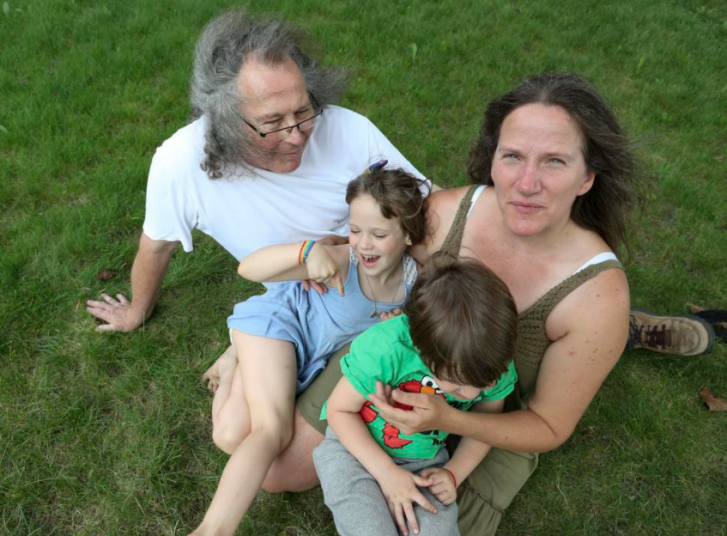After a year of watching Rylin, her four-year-old daughter, struggle with masks and online learning, Lori Campbell was thrilled this week to hear that come September, kids may be able to return to class in-person and without face coverings. Or having to keep their distance.
“That would be great,” said Campbell, a single mother of one. “It’s not natural otherwise. They need to see people’s emotions. They need to sing. Being divided like this is ruining our kids.”

Campbell, a law clerk in Toronto, is certainly not the only parent excited at the prospect of a more “normal” academic year. But while you’d be hard-pressed to find a mom, dad or caregiver who doesn’t want to get back to the good old pre-virus days of education, opinions and feelings about getting back to school run the gamut.

Karen Jutzi, an elementary school teacher and mother of two, was shocked that anyone could think of unmasking kids even as cases drop. “I think it’s ludicrous,” the Torontonian said. “There is no other building you could go into in our society right now where unvaccinated people would go unmasked. But somehow it’s OK in a school?”
Parents across the province are weighing in on the issue this week after a report from the COVID-19 Science Table suggested schools in “low risk” areas should be able to resume extracurricular activities as well as allow their students to drop the masks and social distancing — even as younger students remain unvaccinated. Currently, kids under 12 are not eligible to receive any of the shots.
The report, the most recent from the Science Table, a group of highly regarded experts that parse the research and send science-based policy recommendations to the provincial government, also suggests that high schools ditch the quadmester system and return to a normal schedule. It said schools should only shut down under catastrophic circumstances.
Peter Juni, scientific director of the Science Table, told the Star the report’s key message is that it is vital for students to return to in-person learning but with preventative measures, including proper ventilation, hand washing and keeping symptomatic children at home.
Allowing children to go unmasked and get close together, he says, would only be when, where and if there is a low risk in the community. A low risk, Juni says, means limited and only sporadic cases of severe disease requiring hospitalization, no exponential growth and as suggested by Dr. Kieran Moore, the chief medical officer of Ontario, less than 10 cases per 100,000 people per week.
Given that Toronto’s cases are still above that level, the Delta variant will likely soon be on the rise and a likely uptick in cases now that the province is reopening, Juni says, “it is extremely unlikely that our children will start the school year without masking and distancing.” Luckily, Juni says, children tend to fare better with the virus than adults and it is relatively rare for a child to end up in the ICU. About 1 in 1,000 to 2,500 children who get COVID will get critically ill, Juni says.
“If we keep the case numbers low in the community and stick to preventative measures in schools,” he says, “it is unlikely that we will have uncontrolled outbreaks in school.”
Markus de Domenico, a Toronto Catholic District School Board trustee and father, wants nothing more than for school to resume as safely as possible. And he’s thrilled that students in secondary schools who are eligible for the vaccine can get back to sports. Even though, he says, it may be some time before things are fully back to normal, at least the Science Table report is bang-on. “We are heading in the right direction.”
Like Jutzi, Charles Pascal, former deputy education minister and OISE professor, is skeptical about the talk of a return to unmasked normal given that there is a variant on the loose — and considering the government has yet to weigh in on a variety of issues, including making sure each classroom is properly ventilated come fall, keeping class sizes down and figuring out how to tackle the learning loss of the last year and student mental health.
“Where is the plan to support that reality?” he says.
Because there are too many unknowns — and her children are too young to be vaccinated — Jutzi says she is going to keep them in virtual school this fall.
“How crowded will schools be? How bad will ventilation be?” she says. “We don’t think it’s particularly safe to (go back in person). It’s not a risk we’re willing to take.”
Article From: The Star
Author: Michele Henry is a Toronto-based reporter for the Star, writing health and education stories

